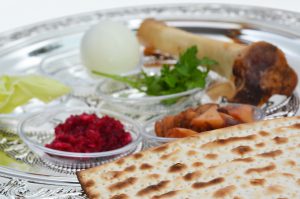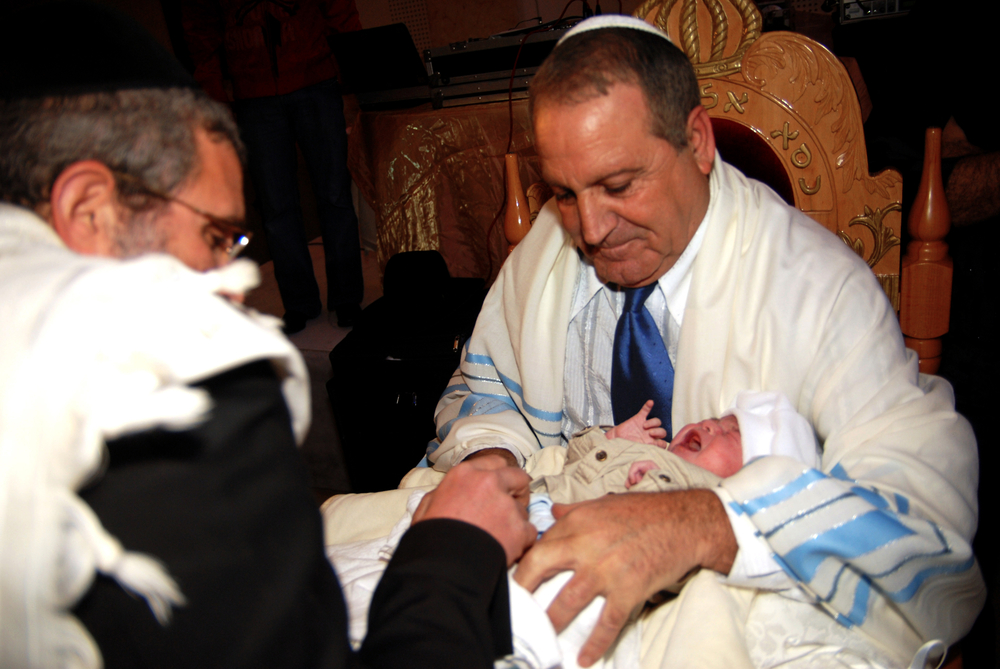
This week’s Torah portion, Parshat Mikeitz, picks up our story after exactly two years have passed. Pharaoh has woken up from a night in which he dreams two disturbing dreams that he is unable to find anyone to interpret and he is quite concerned about them. His butler remembers Yosef back in jail and suggests that Pharaoh ask him to interpret the dreams. The guards fetch Yosef who is given a hair cut and new clothes and brought before Pharaoh. When asked to interpret the dreams, Yosef answers that it is G-d who interprets dreams. Pharaoh tells him about the first dream in which seven healthy cows and seven sickly cows emerged from the Nile River. When the seven sickly cows ate the seven healthy cows, they did not appear any fatter or more healthy. He then explains that he went back to sleep and in his second dream, he saw seven healthy stalks of grain followed by seven sickly stalks of grain which also swallowed up the healthy ones, but their appearance did not improve. Yosef explained that these were really the same dream and indicated that G-d would send Egypt seven years of bounty followed by seven years of famine. He suggested that Pharaoh appoint someone to store food grown in the first seven years so that they will have provisions during the seven years of famine. Pharaoh appoints Yosef as his second in command, whose task it is to prepare Egypt for the famine ahead. He gives Yosef his signet ring, royal garments, a wife and a new name, Zafnat Pane’ach, which means “he who explains that which is hidden” according to Rashi. According to the Zohar, this new name allows Yosef to conceal his identity when his brothers come before him later in this parsha.
And so it came to pass that Egypt had seven years of plenty and Yosef collected grain and stored it. He has two sons named Menashe and Ephraim, the first Jewish children to be born in exile. Just as Yosef had told Pharaoh, the famine came to the area and Egypt was uniquely positioned with Yosef’s storehouses of food. People traveled from all over the region to purchase provisions from Egypt. Back in Cana’an, Yaakov tells his sons to go to Egypt to purchase food. He sends the ten brothers, keeping Binyamin at home fearing something could happen to the last remaining son of Rachel. Yosef recognizes his brothers right away, but they do not know who he is. He remembers his dreams and knows that they are being realized at this moment. He accuses them of being spies to which they respond that they are truthful men, 12 brothers, one of which is missing and the other, the youngest, is with their father. He tells them to bring the youngest brother to him so that he will know they are telling the truth, keeping one brother, Shimon, in jail as collateral that they will return. The brothers turn to each other and say ‘this terrible thing is happening because we sold our brother!’ and Reuven says that this is vengeance for their not listening to him when he said that they should not hurt Yosef. The brothers did not know that Yosef understood their words, as they had been communicating through a translator. Yosef turns away from them and cries. He imprisons Shimon and sends them back with their sacks filled with grain for their families and food for the journey. He instructs that their money be returned to their sacks as well. When they open their bags on their journey, they find their money in their sacks and are afraid that they would be accused of having stolen the grain!
They return to Yaakov and tell him all that has transpired and show him the sacks of grain and money. He says to them – ‘now Yosef is gone, and Shimon is gone and you want to take Binyamin from me too?!’ Reuven suggests that he hold him responsible for bringing back Binyamin alive, giving him his own two sons as collateral. At first Yaakov does not allow them to take Binyamin until they have run out of food and sorely need to return to Egypt for more provisions. Yehuda takes responsibility for Binyamin and Yaakov sends them to Egypt with double the money, instructing them to offer the money for the previous sacks of grain back to the Egyptians. When Yosef sees them with Binyamin, he instructs his servants to prepare a fine meal for them and him in his home. The brothers fear that they are being set up as thieves of the original bags of grain but are assured by a servant that their first sacks of grain were paid for. Shimon is release and they are given water to wash their feet and food for their animals. When they arrive at Yosef’s home, he asks if his father is still alive. He is so moved by this news and reunion with his brothers, including Binyamin, that he goes to his private room and cries. After washing his face, the meal is served, with the brothers seated in order of age and Binyamin receiving much more food than the others.
Yosef instructs that their bags be packed with as much grain as they can hold and that their money should once again be returned in their bags. He instructs that his silver goblet be hidden in Binyamin’s sack. After they leave, Yosef sends after them with instructions to bring them back as they have stolen his goblet! All of their bags are searched and it is found in Binyamin’s sack. The brothers respond by tearing their clothing. When they are brought back before Yosef, Yehuda speaks on their behalf and offers them all as slaves. The parsha concludes with Yosef’s reply that only Binyamin should remain in Egypt as a slave, setting the rest of the brothers free to return to their father.
Wow! What an exciting parsha! The black and white pearls could symbolize the cows in Pharaoh’s dream and the night in which he dreamed. The pretzel sticks could symbolize the stalks of grain (if you want to get creative, you can tie some together with licorice rope) from Pharaoh’s dream and that is placed in the storehouse of Egypt and the sacks of the brothers. The blue and white nonpareils can symbolize the Nile River that plays an important role in the dreams as well as the two baby boys born in this week’s parsha. The candy lips symbolize the retelling of the dream to Yosef and Yosef’s interpretation of the message G-d is sending in the dreams. They could also symbolize the words the brothers speak, thinking Yosef will not understand their language. The Cry Babies could symbolize the extreme distress Pharaoh is in in the beginning of the parsha, the two babies born in this week’s parsha and the two times Yosef turns away from his brothers and cries. The Ring Pops could symbolize the signet ring that is given to Yosef and Yosef’s marriage. The silver coins symbolize the money that was brought down to Egypt and then returned in the bags of the brothers both times they went to Egypt. They could also symbolize the silver goblet planted in Binyamin’s bag, leading to the climactic end of this week’s parsha. Last but not least, the feet lollipops symbolize the journeys of the brothers from Cana’an to Egypt twice in the parsha, and the water offered to them to wash their feet before the big feast in Yosef’s house.
What other ideas do you have? Please share them in the comments below!
Shabbat Shalom,
Shayna Levine-Hefetz



Rachel Rosner
says:we used pretzel rings for the signet ring Pharoah gave Yosef
cola sour sticks from 2 different brands – one was fatter and one was skinnier for the wheat in the dreams of Pharoah
and pareve chocolate from Elite which has a cow on each square for the cows in Pharoah’s dream
thanks for the great ideas !
Shayna Levine-Hefetz
says:I am so happy that you enjoy the blog and it enhances your Shabbat table – thanks for your great ideas!